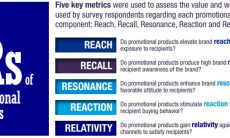The following is a sponsored article from our partner, GaggleAMP
The coronavirus impacts everyone, including you, so you need to make adjustments to your marketing strategy accordingly.
It may be directly, or indirectly, but the coronavirus does touch your business in some way. You’ll need to adjust your marketing strategy by shifting your brand messaging. You cannot continue the same sales pitch you’ve been using. You need to possibly be more empathetic than you have ever been before.
For example, if you have salespeople that start out phone calls with prospects asking how they’re doing but then going right back to the same old lines, they’re not doing it right. The way we approach selling and marketing our products and services has changed, and the pitch needs to change, too.
Many marketers use events and conferences as part of their marketing strategy, but that suddenly changed. The leads you’d typically get from hosting a conference or having a booth at someone else’s will have to come from somewhere else.
It’s important to have a diversified strategy, not because your events could get canceled, but because you won’t have all your eggs in one basket. If you were already doing this, it’ll be easier to shift your efforts towards social media, paid advertising, content, email, and more.
Even if event marketing was not in your plans at all, or you’re not in an industry that was greatly impacted by the pandemic, many of your customers are going through tough times, and that will trickle up to you. You could lose business, see fewer leads, and close fewer deals.
Greg Rosner, CEO of pitchkitchen.com, and Glenn Gaudet, CEO of GaggleAMP, spoke on The Sales Therapy Show on LinkedIn Live about how every organization is forced to shift their marketing strategy and messaging due to the coronavirus.
Your Marketing Strategy Must Change
You are impacted by the coronavirus pandemic even if you don’t know it. You could lose opportunities, subscriptions, leads, and business. If the businesses that buy your product or service are impacted by their customers or supply chains experiencing a decrease, it will impact your business in the long-run.
“Some of the CEOs that I’m speaking to right now, they’re [saying] ‘yea, things are great….we’re fine.’ And I feel like somethings off with that,” Rosner said. “There’s no way you were tuned in to your customers if you’re thinking that you’re fine. Each business is inextricably tied to every other business.”
When your customers aren’t doing well, it could catch up to you quickly. Change your marketing strategy and messaging to let them know you’re here to help. You should not be pitching to people the same way you did pre-pandemic. Offer support, explain how you can help, check the hard sales pitches at the door, and be completely transparent – this will all go a long way.
Shift Your Marketing Strategy For The Long-term
Due to the pandemic, you might be looking for some short-term wins. You know that your marketing strategy suddenly took a big hit, but you need to adjust for both the long-term and the short-term.
Your customers need help now, so you should find ways to support them, Gaudet said.
“How do I add value that isn’t going to put them more at risk financially?” He said.
As the CEO of GaggleAMP, an employee advocacy platform, Gaudet talked about how he is helping existing customers. Employee advocacy enables marketers to suggest actions colleagues around their organization carry out on social media to help promote themselves and the brand.
Customers pay for GaggleAMP just like they would any other SaaS platform – on a per-user/per-month basis. Gaudet said he’s removed the cap on users for existing customers, meaning they’ll pay the same amount they were before but have unlimited users. This allows customers to get more out of the platform at no additional cost.
The idea behind this move is that it allows marketers who lost some of their budgets on event marketing to easily focus more on social media and make up much of their losses for no additional commitment from their budget.
This is an example of something any business can do for its customers.
“That’s the long game,” Rosner said. “The relationships and the trust that’s being built right now with your customers…that’s the trust you’re building for the long game. You’re going to look back with those relationships with those customers and say, ‘remember that time we went through that tough time together and we helped each other through it?’ That will make the future business that much stronger.”
Operations Must Change Too
Most organizations are working from home, but many are not accustomed to doing so.
Some workplaces already used tools for remote work such as Slack, Zoom, Google Suite, Box, and other cloud-based applications, but other organizations didn’t even allow employees to work from home.
“There are a lot of companies that are not used to managing a fully-remote setting,” Gaudet said. “But a lot of companies have been doing this for years and they’re going to have an advantage.”
This pandemic will have lasting effects in terms of business operations. People won’t work from home for months and then just go back to regular 9-5 days in the office Monday through Friday with commutes every morning and afternoon. Remote work will become more commonplace than it was before the pandemic.
“People who never worked remotely before, are doing it now,” Gaudet said. “When we get back to normal, [after employees] showed they were productive working from home, will they have a little more leeway to work from home in the future?”
But before we reach the end of this pandemic, you must adjust your business processes and your marketing strategy to have both short-term and long-term wins.








